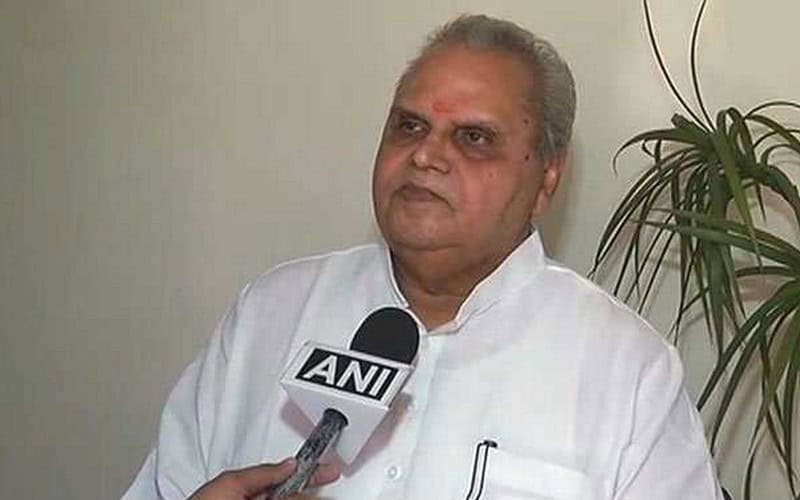A day after Governor Satya Pal Malik dissolved the Jammu and Kashmir assembly, the State Administrative Council chaired by him decided to turn the J&K Bank Ltd into a public-sector bank, taking its autonomy away and making it accountable to the state legislature. Further, it will also be brought under the ambit of the J&K RTI Act and the Central Vigilance Commission.
Until now, J&K Bank was classified as an ‘old private sector bank’ and supervised by the Reserve Bank of India. Besides, it is also subject to oversight by the Comptroller and Auditor General (CAG).
Omar Abdullah of National Conference called it a “disturbing development” and said the Governor, who is a “caretaker administrator did not have the people’s mandate to take such major decisions with far-reaching implications”.
PDP’s Mehbooba Mufti described it as a “disturbing step to snatch every bit of autonomy that our institutions have”. Sajad Lone of People’s Conference said his party’s economic philosophy is decentralisation and total liberalisation.
“We believe in smaller government, not more government control. The best thing the government of the day can do is to get out of the way. Any remedies (regarding J&K Bank) should have been institution-specific, rather than invading it with overarching government control. The track record of J&K government PSUs is extremely bad,” he said.
The J&K state holds a majority or 59.3 per cent stake in the bank. In a statement Thursday, J&K Director, Press and Information, said, “As the state is a major shareholder in J&K Bank Ltd, a need was felt that it should have a character of a PSU which is subject to general supervision and access for enhanced transparency in the transaction of its business to promote trust.” “The purpose is not to question the day-to-day activities of the bank management but a step towards strengthening better corporate governance,” the statement said.
J&K Bank is a listed entity and earned profits of Rs 440.90 crore on a total income of Rs 7,116.71 crore in 2017-18. The bank’s shareholding pattern, as on September 30, 2018, shows that individual investors hold about 12.5 per cent, mutual funds 5.36 per cent, foreign portfolio investors 16.17 per cent and LIC 2.76 per cent. Former J&K Bank chairman M Y Khan, who led the bank for eight years, said such a decision should not have been taken.
“This will have a long-term impact on the bank’s functioning as it will be exposed to agencies and instruments of the state. It will also affect decision-making because every decision will have to be double-checked by the state,” he said. “Even if there were issues, corrective measures could have been taken, but not such a drastic measure.”
Another former banker with J&K Bank said this move was in contravention to the Banking Regulation Act, and could be challenged in courts. “Banking is a Central subject and governed by the Banking Regulation Act which gives the RBI powers over private sector banks. If J&K Bank has to report to the state legislature, it is in violation of the Act,” the banker said.
According to this banker, the State Administrative Council’s decision can also be challenged by minority shareholders. He cautioned that institutional investors may not take this decision kindly and could sell their holding, impacting the stock price. J&K Bank enjoys a pre-eminent status in the state and has played a key role in promoting local business and industry.
The decision is seen by both NC and PDP as chipping into the autonomy of institutions that the state enjoyed. “There are entities and political parties at the national level that have been deeply uncomfortable because J&K has its own thriving bank,” Omar Abdullah said.
According to Mehbooba Mufti, there were clear signals suggesting several such interventions to take away autonomy of institutions that J&K enjoyed. “J&K Bank is part of that. This is why we came together with NC and Congress to form a government and prevent such interventions,” she said.

